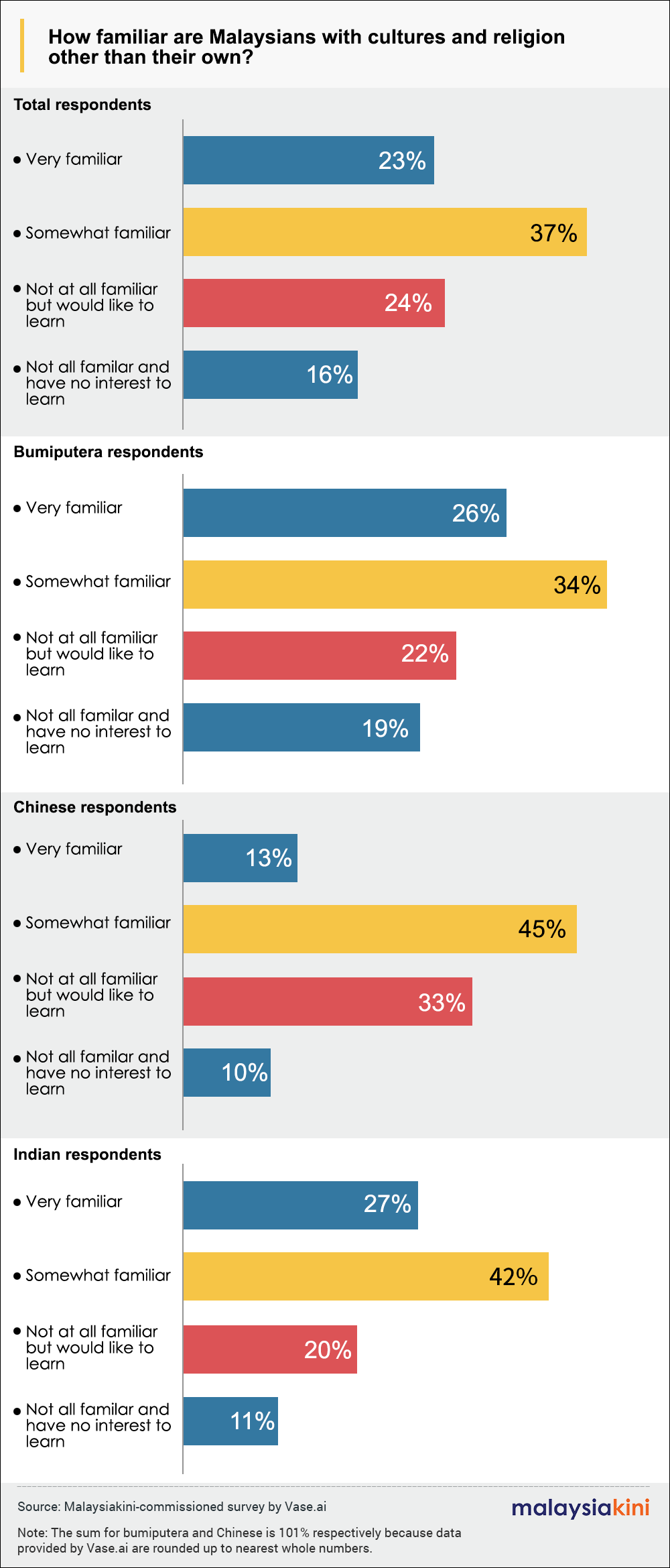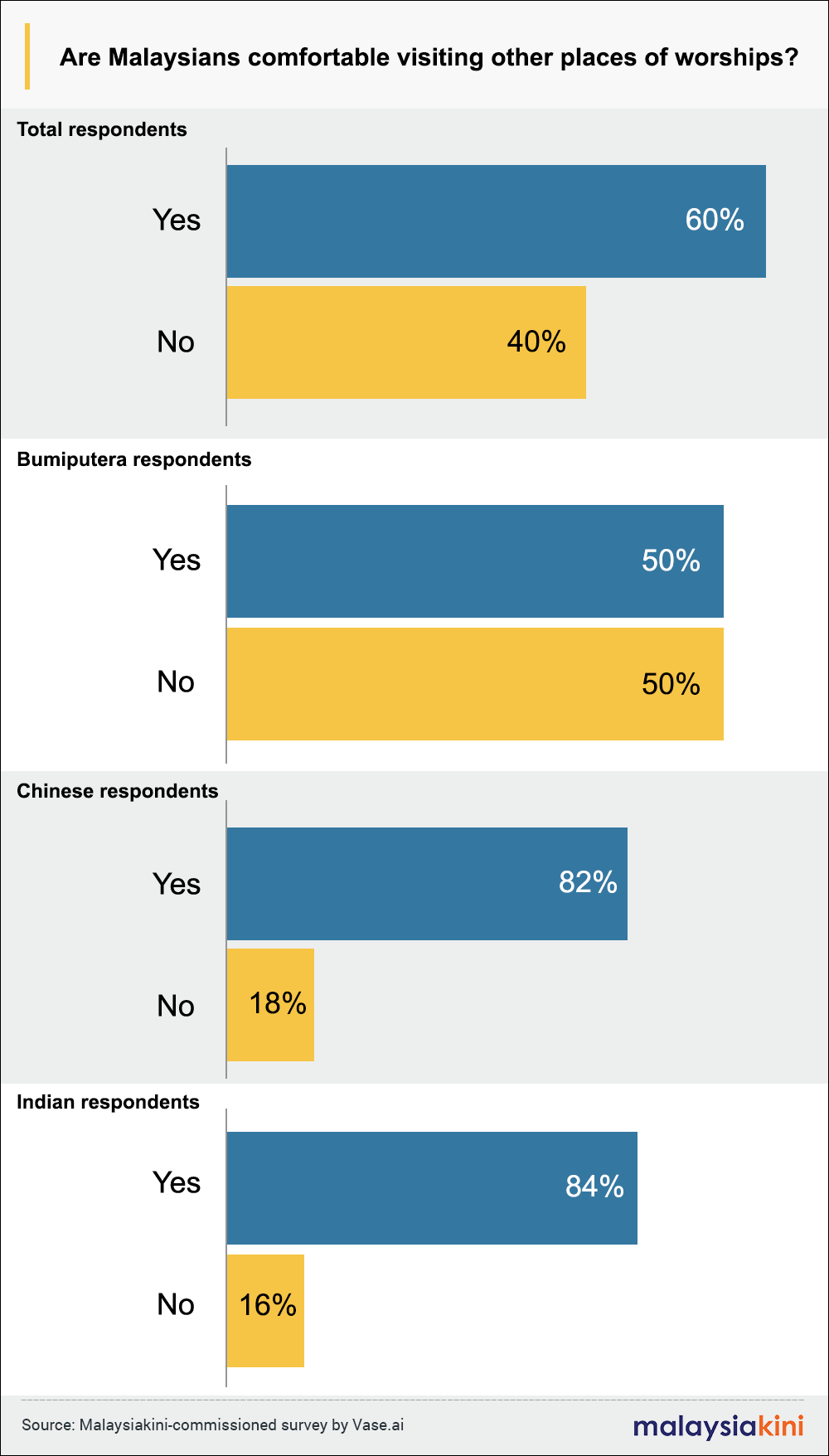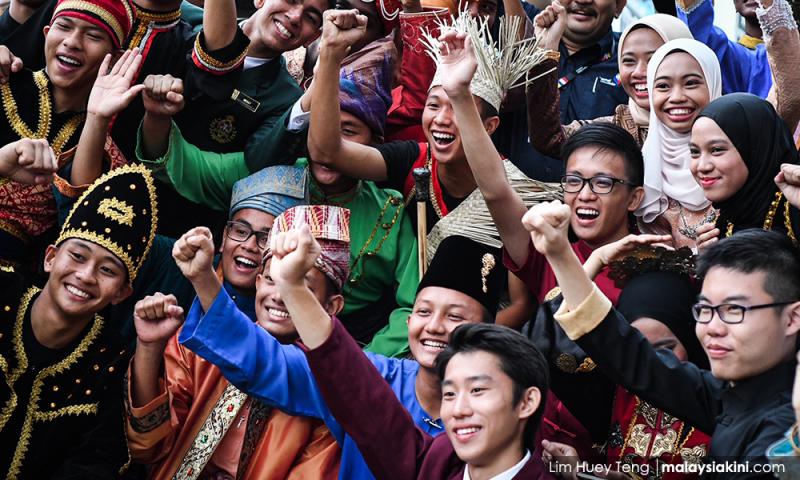'Don't know, don't care' - how 1 in 6 M'sians feel about other religions, cultures
About a sixth of Malaysians say they do not know about other religions and cultures, and have no interest in learning more.
Nearly a quarter of respondents said they were unfamiliar, but willing to learn, while the remaining 60 percent say they are either very familiar or somewhat familiar.
This was based on responses from 1,024 people nationwide in a survey commissioned by Malaysiakini, through the research firm Vase.ai.
A total 69 percent of respondents were bumiputera, 23 percent Chinese and 8 percent Indian. Find out more about the respondent demographics here.
The survey was commissioned as part of research for Malaysiakini’s article on education and integration, which will be published tomorrow in conjunction with Merdeka Day.
The data reveals that the results are mostly consistent across age and ethnic groups.

Proportionally, however, bumiputera respondents who said they do not know or care to learn about other religions or cultures almost double that of Chinese or Indian respondents.
Nineteen percent of bumiputera respondents said they are unfamiliar and unwilling to learn about other cultures and religions, compared to 10 percent of Chinese Malaysians and 11 percent of Indian Malaysians.
Ethnic Indians are also the most familiar with other cultures and religions, with 69 percent saying they were, compared to 58 percent Chinese and 60 percent bumiputera.
Malaysians' self-reported familiarity with other religions surpasses that found among Americans in a survey by Pew Center published last month.
However, in the Pew Center survey, respondents were not just asked if they were familiar with other religions or if they wanted to learn more.
Instead, they were tested on their knowledge of major religions of the world through a multiple choice quiz. The average American was able to correctly answer 44 percent of all questions.
Visiting other places of worship
Indian Malaysian respondents were found to be the most comfortable visiting places of worship other than their own, almost on par with Chinese respondents.
In contrast, only half of bumiputera respondents said they were comfortable visiting places of worship besides their own.

Although not covered by the survey, the reason for bumiputera discomfort is likely due to religion. Malays, who are Muslim, make up the bulk of the bumiputera community.
Responding to a question on whether Muslims can enter the place of worship of another religion, the Federal Territories Mufti’s Office said last year that it is permissible if it follows the tenets of Islam.
“This includes if the intention is to spread the teachings of Islam, interfaith ,et cetera. But attending a religious celebration there is not allowed.
“A Muslim is also permitted to attend a wedding in a church. The attendance is encouraged if this is the wedding of a member of the family, friends, neighbours, or if your attendance can contribute to the spread of Islamic teachings,” it said.
The Mufti’s Office was responding to a question by a Muslim convert, who asked if it is permissible to attend a relative’s church wedding.
Vase.ai's respondents were surveyed online and randomly selected from its database to reflect national demographics.
All respondents in the database have been screened using banking, phone and national registration identity card details to ensure there were no duplicates.
A total of 19 percent were from Sabah and Sarawak, while the rest were divided between the regions of Peninsular Malaysia.
The respondents were aged 25 and above, with 51 percent aged below 35.
Learn more about the survey and explore the data here.
Coming up on Friday: Whither integration? How Malaysian children are growing up in different streams
RM12.50 / month
- Unlimited access to award-winning journalism
- Comment and share your opinions on all our articles
- Gift interesting stories to your friends
- Tax deductable

 Aidila Razak
Aidila Razak